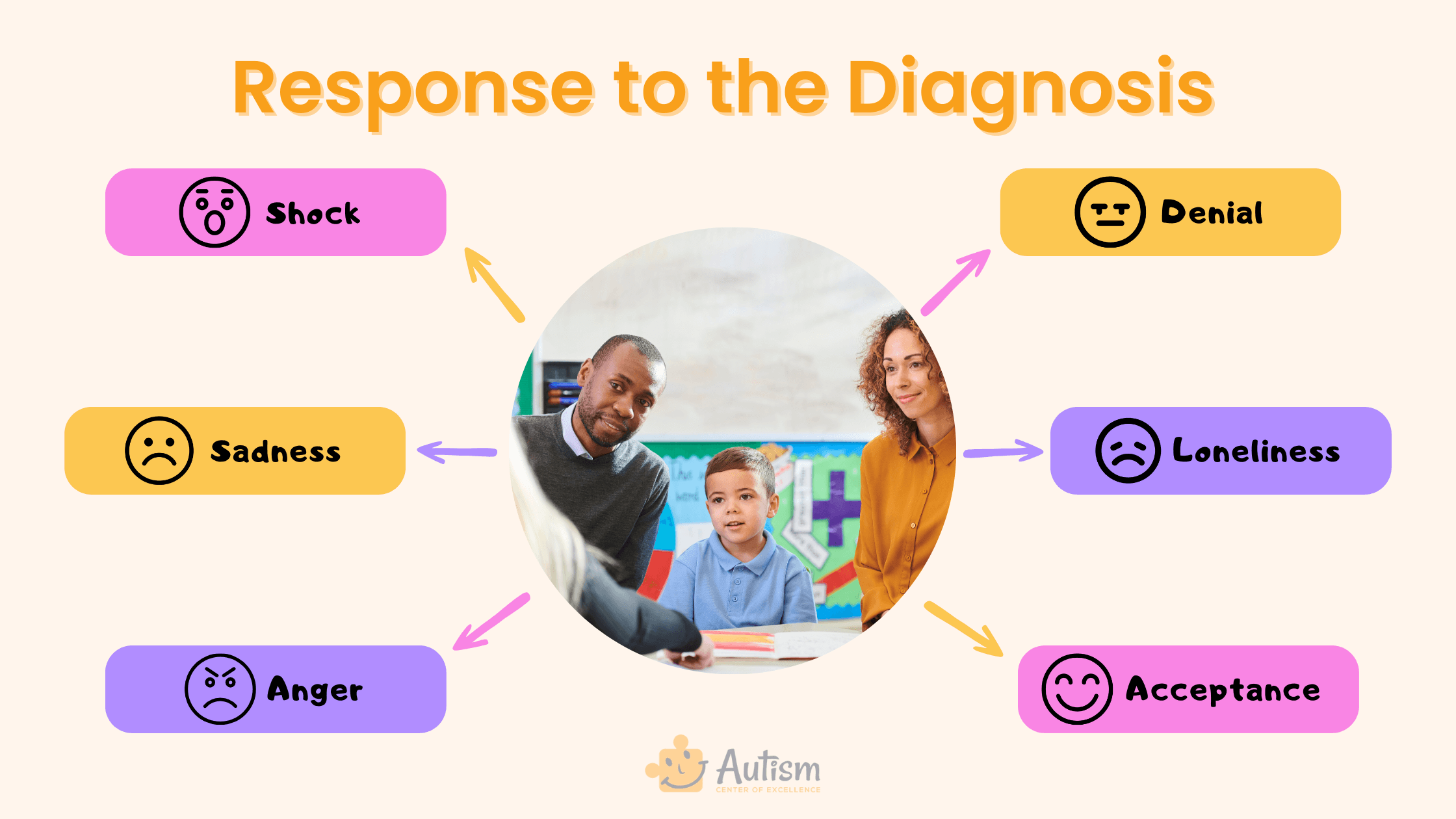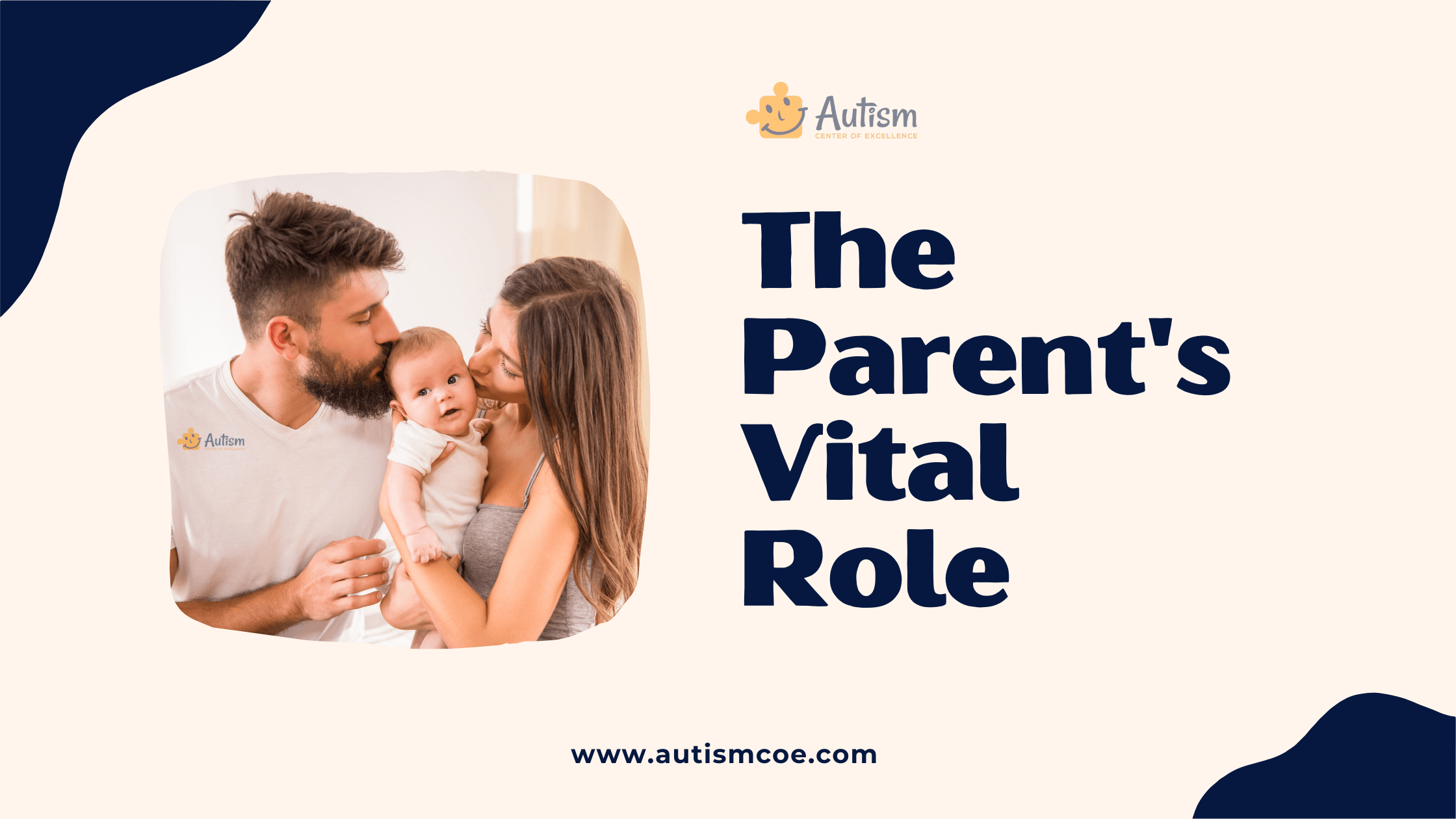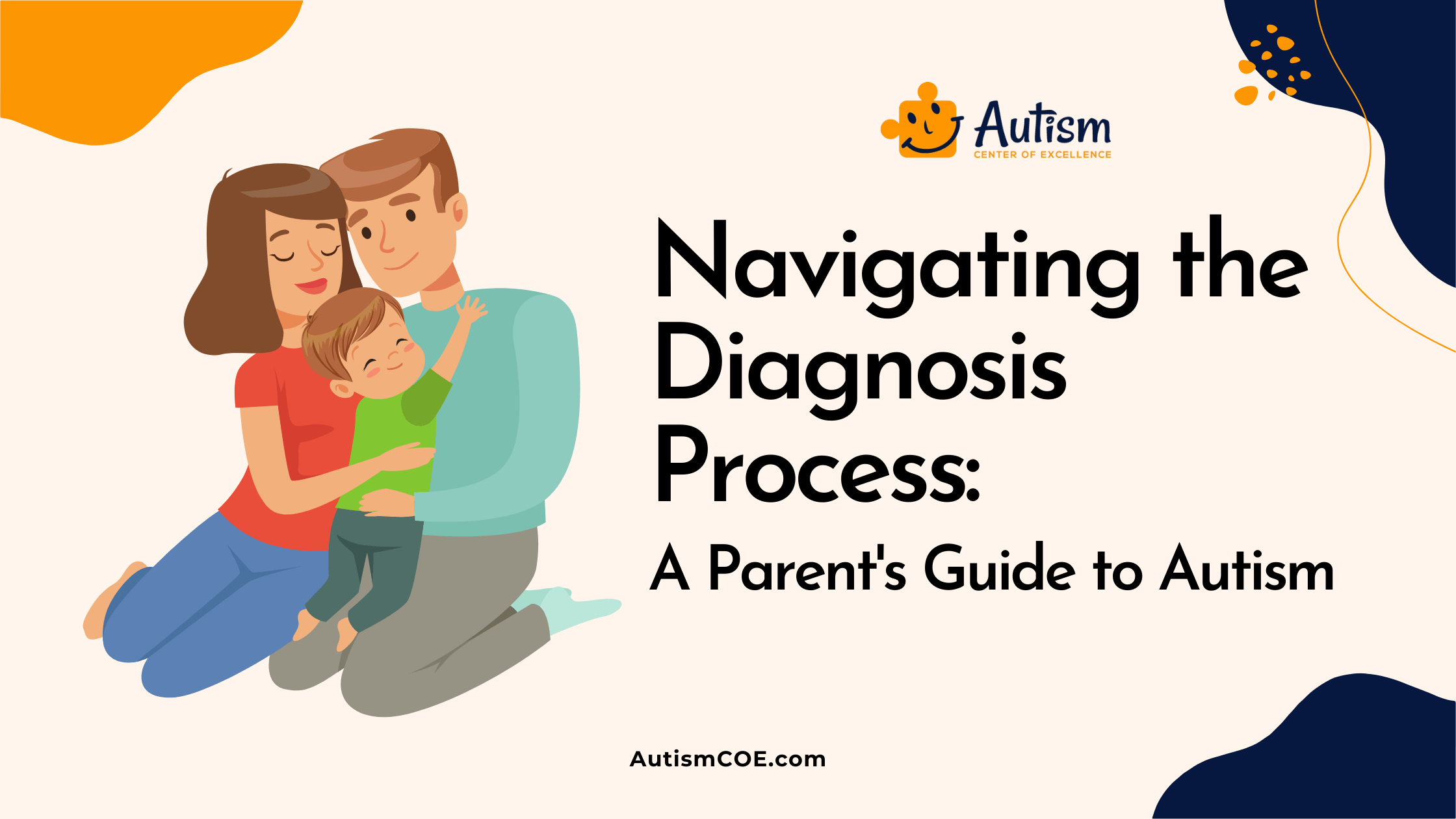Hey there, parents! Welcome to a guide designed just for you – a compass for navigating the intricate journey of an autism diagnosis for your child. We get it; it’s not always an easy path, and that’s why we’re here to be your go-to companion.
In this blog, we’re diving into the a Parent’s Guide to Autism – understanding the diagnosis process, recognizing your vital role, and offering support at every twist and turn. Think of it as a friendly chat, full of insights, practical tips, and stories of strength. Our goal? To empower you with knowledge and resources, so you can navigate this journey with confidence and resilience. Let’s navigate the diagnosis process and discover the strengths that make your child shine.
Understanding the Diagnosis Process
Figuring out the diagnosis process is almost like having a map that guides you. It enlightens you to be actively involved along the way. The knowledge about the steps involved, the role of health professionals, and the objectives of the assessment, will equip you with the confidence you need to move through this process. The role you as the parent play in fighting for your kid is nothing short of priceless.
The First Steps:
The detection of autism begins with how you as a parent can notice symptoms of autism. It could be that your child demonstrates his/her unique style of behavior or shows progress in a certain way. Draw on your trust – you know your child better than anyone else.
The Experts on Your Team:
When you notice that, the next course of action is to reach out to healthcare professionals. These may include your pediatrician, developmental psychologists, and experts in autism. The professionals who provide these services become your allies, using their knowledge to get to the bottom of your child’s behavior.
Assessments and Evaluations:
Consider exercises and assessments to gather additional information about your kid. Such things can involve you watching how the child expresses, communicates with others, and processes information. The doctor may perform cognitive testing and a developmental history review, as well. These tests form an overall impression of your child’s strengths and weaknesses.
Taking a Team Approach:
The diagnosis process usually happens with a group of various medical specialists working together. Each expert has his/her own approach, and together we develop a more holistic view. Behaviorists may be psychologists, communication-oriented therapists speech-language pathologists, and occupational therapists may be sensory-oriented ones.
Open Conversations:
Communication between you and the healthcare professionals is key, and Autism Center of Excellence is here to support you every step of the way. Share everything you’ve observed about your child’s development with our team of experts. Don’t hesitate to inquire and share your concerns – we’re here to listen and provide guidance. This collaboration creates a more accurate and personalized diagnosis, ensuring that your child receives the best possible care and support.

Response to the Diagnosis
Learning that your child is on autism spectrum might become a life-changing experience for you which in turn, transforms you and makes you worry for the future. First of all, the main issues that are probably keeping you awake at night are your child’s experiences, assimilation issues of the family, and everyday difficulties associated with caring for a kid with autism.
This is the time your family has been dreaming about for years, and for your family, it is a clear turning point. Finding emotional support and reliable information presents itself as of huge importance in the world of diagnosis and paving the path for a safe and better future for a child and their family. Take into account the fact that every family’s response to the diagnosed disease is different and people react to it differently, depending on the variety of reasons. The following are common reactions that families may experience when their child is diagnosed with autism, often described as a grief reaction:
Shock:
To start with, you could feel blank and even powerless, still not able to understand and accept the diagnosis. This is a common reaction when you’re told about the diagnosis for the first time. You might find the first minutes after the diagnosis being terrifying and crave for acceptance of something you never dreamed of.
Sadness:
It is quite an ordinary situation when parents are mourning the hopes and dreams that they once had expecting their child to turn out that way before finding the way to go on. Possibly, there are times, when you will tear up. It is important to notice the subsistence of sadness and depression. In the course of depression, you may easily find it hard to carry on with things, but you have to give yourself permission to be sad. Realizing this leads to personal growth. Keep in mind that it’s normal to be sad. How you express and digest such feelings is important for your recovery.
Anger:
Anger is an absolutely normal reaction to the stress and loss that goes with the fact that your child has been diagnosed, and you should know that a lot of it will be directed not just to the child who has been diagnosed, but also to your spouse or a good friend. However, the fact that anger is a healthy and normal reaction to the constant feelings of grief and stress, that are brought along by your child’s diagnosis, should be understood. It is normal for you to use anger as a tool to deal with the wide range of emotions experienced in this difficult situation.
Denial:
You may find yourself in the phase where everything within you refuses to believe that this could happen to your child. The process might get harder while reminding yourself that your child is affected. Such as in denial is a means of survival that helps a person to go through the most difficult times. Nevertheless, keep in mind that you might be experiencing denial, which may not be a useful factor when the time to decide about the treatment of your child.
Loneliness:
Experiencing feelings of isolation and loneliness is not uncommon. These emotions often arise from various sources when dealing with a loss. Loneliness may stem from the perception that you lack the time to connect with friends or family for companionship. Additionally, there might be a fear that reaching out to others won’t result in understanding or support.
Acceptance:
Ultimately, you will arrive at an understanding where there will be no doubts that your family can successfully cope with this journey. It’s critical that you know the difference between comprehending that a child has been diagnosed with autism and accepting autism itself. The fact that you are ready to be the champion of your child becomes evident when you embrace and appreciate the fact that you are getting prepared to take that special journey.
Emotional awareness including anxiety about the future is permitted and expected. It’s okay to feel different emotions that include acknowledging them, as it is necessary for the child to move forward and become an advocacy. Emotions are strong and if you try to shut them out and pretend they don’t exist, they can come back in some unfriendly ways. By accepting your feelings and emotions, you offer yourself a more constructive journey.
Suggested – 25+ Autism Statistics: How Many People Have Autism?
Supporting Your Child Through Diagnosis
As we dive into the guide on understanding and navigating an autism diagnosis for your child, we’re hitting a crucial stop: “Supporting Your Child Through Diagnosis.” It extends a compassionate guide to not only cope with challenges but also to build a robust support network that serves as a pillar of strength throughout the diagnostic journey.
➡️ Emotional Support for Parents and Child:
First things first – take a moment for yourself. It’s like they say on airplanes: put your oxygen mask on before assisting others. Seek support from friends, family, or professionals who get what you’re going through. For your child, creating a safe and understanding environment is key. Your consistent love and support provide the anchor they need during this period of discovery.
➡️ Resources for Coping:
Now, let’s talk about coping strategies. It’s like having a toolbox for challenges that might pop up. Explore resources like informative materials, online support groups, and workshops on autism awareness and parenting. The more you know, the better equipped you’ll be to face any hurdles that come your way – and celebrate the victories, big or small.
➡️ Building a Support Network:
No one should navigate the twists and turns of an autism diagnosis solo. That’s where establishing a support network becomes essential. Connect with other parents who have walked similar paths. Whether it’s through local meet-ups or online groups, sharing experiences and advice in a community that truly understands can make a world of difference. It’s like having a cheer squad for both the tough days and the triumphs.
Remember, you’re not just a parent going through this – you’re a superhero for your child. By offering emotional support, exploring coping resources, and building a strong support network, you’re creating a foundation that helps both you and your child navigate the diagnosis process with strength and resilience. Keep going – you’re doing amazing!

The Parent’s Vital Role
Similar to any stressful event in your life, discovering that your child has autism will impact not just you but everyone in your family and network of friends. It’s expected that your role as a parent will change, leading to a mix of positive and negative experiences in this new chapter.
Observations Matter: As a parent, you are the first expert on your child. Your observations of their behavior, communication, and social interactions are incredibly valuable. If you notice anything that feels different or unique about your child’s development, trust your instincts and bring these observations to the forefront.
Active Participation: Your involvement doesn’t stop at observations – it extends to active participation. When you engage in diagnostic discussions with healthcare professionals, you provide essential insights. Share details about your child’s developmental milestones, any concerns you may have, and any patterns of behavior that stand out to you. Your input helps shape the understanding of your child’s unique qualities.
Open Communication: Communication is the cornerstone of a successful diagnosis journey. Establishing open and honest communication with healthcare professionals fosters a collaborative environment. Feel free to ask questions, seek clarification, and express any worries you may have. This dialogue ensures that everyone involved is on the same page, working together to provide the best possible support for your child.
Common Areas of Concern for Both Mother and Father:
Here are examples of some new experiences you may encounter:➡️ Mother:
- May feel burdened by the everyday responsibilities of caring for a child with autism.
- May feel pressure to become an expert on autism and learn everything overnight.
- May worry about the future of the family.
- May facing difficulty to find balance and time to manage household tasks, attend to other children, and handle daily activities.
➡️ Father:
- May feel less inclined to openly share emotions.
- May experiencing stress related to family finances and the uncertainties of the situation.
- May worry about the long-term future of the child.
- May facing additional challenges such as stress and anxiety that can impact work life.
Professional Insights and Expert Advice
Let’s dive into a part of the autism diagnosis journey where the pros take the stage – “Professional Insights and Expert Advice.” This is where we talk about the amazing healthcare professionals who bring their expertise to the table and how you, as a parent, can make the most out of this collaboration.
✅ Contributions of Various Healthcare Professionals:
Think of it as assembling your superhero team. You’ve got your pediatrician, developmental psychologists, and autism specialists – each with their superpowers. These professionals work together like a dream team to understand your child’s behaviors and needs. Pay attention to their insights; they’re like puzzle pieces that come together to form a clearer picture.
✅ Effectively Communicating with Specialists:
Communication is key – it’s like the secret code to unlocking the best support for your child. When talking to specialists, share everything you’ve observed about your child’s development. Don’t hold back! Ask questions, seek clarification, and be a partner in the process. The more you communicate, the better they can tailor their advice and strategies to fit your child’s unique qualities.
✅ Importance of Seeking Second Opinions and Collaborating With Experts:
Ever heard the saying, “Two heads are better than one”? Seeking a second opinion is a smart move. It’s not about doubting the pros; it’s about making sure you explore every avenue. Autism is a complex spectrum, and different experts might offer slightly different perspectives. Collaboration is the name of the game – when these brilliant minds work together, it often leads to a more comprehensive understanding of your child’s needs.
Remember, you’re the captain of this ship, steering it in the direction that best suits your child. By understanding the roles of healthcare professionals, communicating effectively, and seeking diverse perspectives, you’re not just navigating the diagnosis maze – you’re charting a course toward the best possible support for your child. Onward!
Frequently Asked Questions & Answer
What is the Process for Diagnosing a Child With Autism?
Identifying Autism in a child is like solving a puzzle which has many parts. It usually begins with general screening and eventually experts in different specialties will take over. Experts like doctors and psychologists observe the child in terms of their relationship with others and how they communicate. They apply a definite set of criteria to see if the child is within the spectrum of autism pathology.
How Parents Deal With an Autism Diagnosis?
When your kid is diagnosed with Autism, you as a parent may feel a variety of emotions surprising, sad, and uncertain. It’s a process, and parents can find consolation by communicating with specialists, joining groups of other parents who face similar circumstances, and further learning about autism. If parents know the diagnosis, get informed of the situation, and concentrate on their child’s abilities, they are most likely to overcome their feelings.
What is the Role of Parents in Autism?
Parents are the superheroes of a child suffering from autism. Parents become facilitators, offering emotional support and remaining active participants in their child’s development and intervention plans. The parents also play a crucial role in watching their child’s behavior, they recognize signs and communicate with healthcare professionals openly to detect the early signs of autism in their children. They are the main subjects of nurture, always congratulating their child for the strong things and playing a very big role in their overall progress and well-being.
How Should Parents Treat Their Autistic Child?
Dealing with an autistic child is like composing a tailored scheme because every child is particular. Establishing a cozy and understanding atmosphere at home with clear communication and routine matters. Small victories can be celebrated, unconditional love, and acceptance will be applauded hence the creation of a good environment. Together with experts let us craft interventions suited for the needs of the child to achieve the greatest results.
Conclusion
As we wrap up this guide, let’s highlight the crucial role parents play in their child’s autism diagnosis. Trust your instincts – you know your child best. Don’t hesitate to ask questions or express concerns; your active participation is key. Remember, building a support network is vital; you’re not alone in this journey.
With knowledge and advocacy, parents contribute to a deeper understanding of their child’s strengths and challenges. The Autism Center of Excellence is here to support, offering ABA therapy, ABA for Early Intervention, ABA for School Readiness, Speech Therapy, and Occupational Therapy for children aged 2 to 14 in home and center-based settings. Together, let’s navigate this path with empathy and celebrate the unique journey of each child.
Autism Center of Excellence Specially Designed a Guide for Parents of Children Who Have Been Diagnosed With Autism.
Please Note: The content of this blog is for informational purposes only and should not be considered a substitute for professional medical advice, diagnosis, or treatment. Consult a qualified health care professional for personalized guidance tailored to your specific situation.

Bhavika Bhasin
Bhavika Bhasin is the Research and Marketing officer at AutismCOE. She works with children and adults with ASD. Her clinical research includes evaluating various available autism screening and diagnosis methods and their efficacy. She is currently developing a novel screening exam that is indicated to be more accurate than the existing available exams. She is also writes articles papers for various publications.


